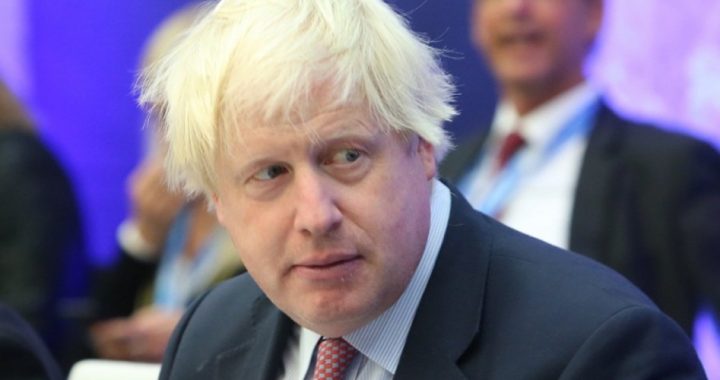
The sharks are beginning to circle around Number 10 Downing Street.
Following last Tuesday’s disastrous defeat of her “soft” Brexit deal in the House of Commons, Prime Minister Theresa May has been busy, furiously working the phones to come up with a “Plan B” deal for the United Kingdom to leave the European Union. On Friday, May spent the day speaking with EU leaders such as German Chancellor Angela Merkel, Dutch Prime Minister Mark Rutte, and European Commission President Jean-Claude Juncker. She also met with cabinet ministers to discuss options.
May is scheduled to unveil her “Plan B” to Parliament on today. But, thus far, the EU appears to be entrenched in their position that the original plan, which failed in Parliament last week, is the best the UK will get. Unfortunately, that plan contains the Irish Backstop, which many hardline Brexiteers believe ties Great Britain far too closely with the EU.
One person conspicuously absent from any negotiations was opposition leader Jeremy Corbyn who initiated last Wednesday’s no-confidence vote in May, which was narrowly defeated. Corbyn has refused to meet with May unless she completely rules out the possibility of a no-deal Brexit, which many predict would cause economic chaos in Great Britain and beyond.
But May has argued that it was “not within the government’s power to rule out a no-deal,” since Great Britain is scheduled to leave the EU on March 29 with or without a deal in place.
Both Great Britain and EU countries have started preparations in the event of a “no-deal” situation.
While the Prime Minister may have survived the no-confidence vote on Wednesday, she did so by an extremely thin margin, casting doubt on her ability to lead going forward. May has already said that she will stand down as prime minister before the scheduled 2022 elections, but her shaky coalition government is on the brink of fracturing and she might see the need to step down more quickly — maybe even in the next few weeks.
In the midst of the Brexit related chaos, May’s domestic opponents are further complicating matters, particularly former Secretary of State for Foreign and Commonwealth Affairs Boris Johnson (shown). Johnson, one of May’s fellow Tories and a hardline Brexiteer, resigned from May’s cabinet last July when May’s “soft” Brexit deal was first unveiled.
In a speech at JCB, a British heavy equipment company, on Friday, Johnson urged the prime minister to go to the EU one more time and demand that the Irish Backstop be removed from the deal. “We need to escape the trap of the Irish backstop, and it’s frankly more than disappointing that in the five weeks since the deal was whisked off the table before Parliament could vote it down we haven’t even tried to get rid of it,” Johnson said. “The notional purpose of the backstop is to prevent a hard border in Northern Ireland, and no one in Dublin or London or Brussels wants a hard border, intends a hard border or thinks a hard border is remotely necessary.”
“Now is the time for us to go back to Brussels, fortified with the emphatic resounding mandate of Parliament and demand real change to that backstop. And this time, we must mean it, so that Britain can get out unilaterally,” Johnson concluded.
But while Johnson believed that the current deal minus the Irish Backstop could be renegotiated if the UK approached it with a firm hand, he saw no reason for any delay in the March 29 deadline or the calls for a new referendum on Brexit.
“By law, on March 29, the UK must leave the EU. And the only way to extend or revoke Article 50 (the part of the Treaty of Lisbon, which allows a country to leave the EU unilaterally) is with the approval of the EU and at the initiative of the UK government. And it would be shameful at this late stage to change that totemic date, March 29th.”
Beyond Brexit, in a possible ploy to put himself in the forefront of any upcoming leadership battle among the Tory Party, Johnson laid out more of his vision for the UK. Johnson thinks that the government should make the UK “the most favorable tax environment in Europe.”
“No increases in taxes and no one, rich or poor, should be paying more than 50% of their income in tax.”
Photo: Boris Johnson




